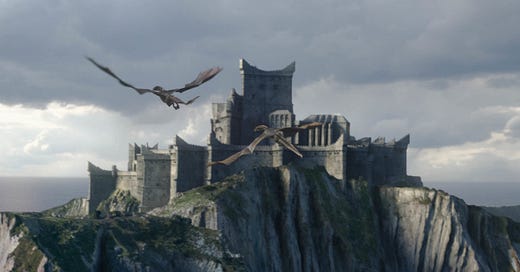Religion in the world of Game of Thrones
Differences between faith as imagined by George R.R. Martin and the Christian faith
Fellow Pilgrims,
I’m a fan of Game of Thrones. I respect that you may not be. There’s a lot of brutality there, and we all have to discern what we do and don’t want to read and watch. I think that the brutality in the Game of Thrones universe helps to see the painful truth of life in a world of sin. For example, if you want to understand patriarchy, watc…
Keep reading with a 7-day free trial
Subscribe to Church Blogmatics by Beth Felker Jones to keep reading this post and get 7 days of free access to the full post archives.





